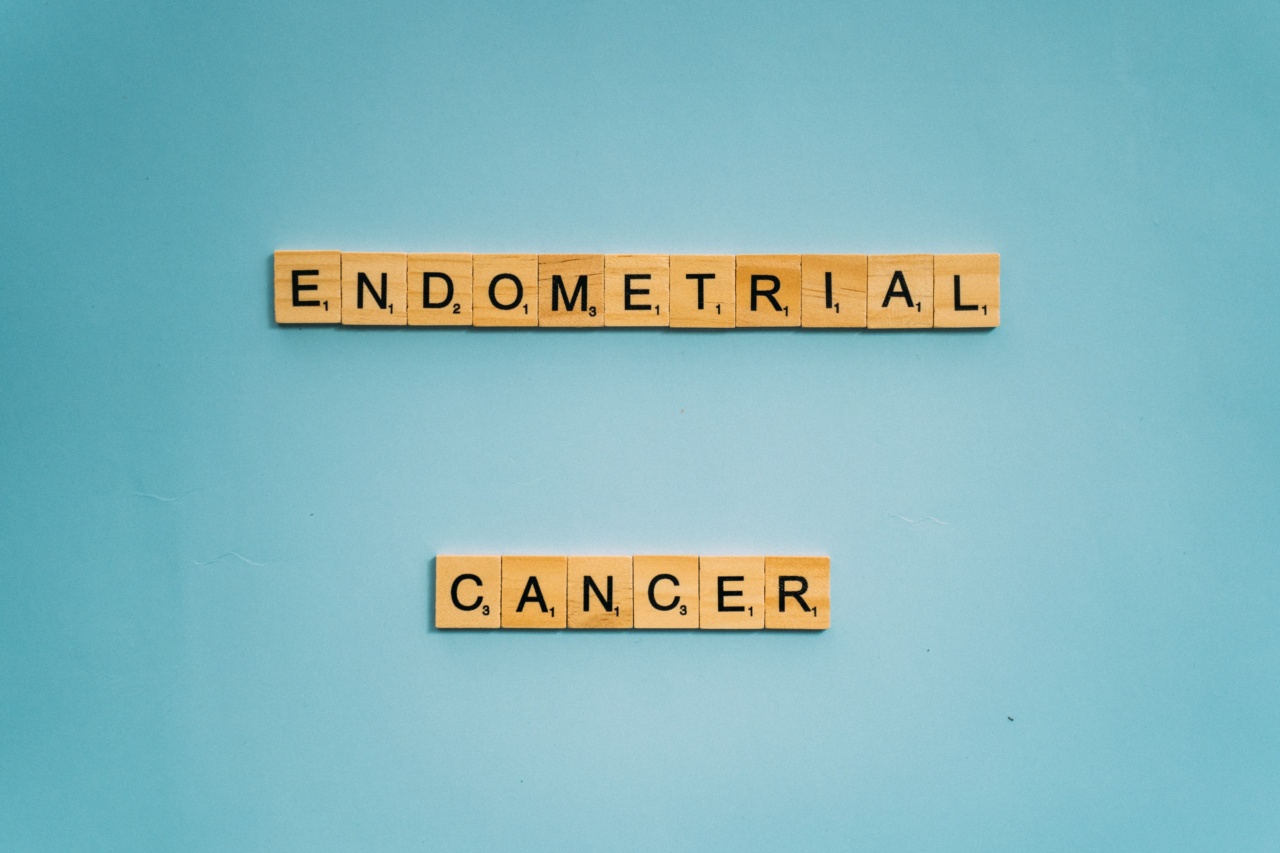Endometrial cancer, also known as uterine cancer, is a type of cancer that develops in the lining of the uterus, called the endometrium. It is the most common type of cancer that affects the female reproductive system.
Although it is most commonly diagnosed in women who have experienced menopause, it can occur in women of any age. While the exact cause of endometrial cancer is still uncertain, there are several symptoms that should not be ignored as they could be indicative of this condition.
This article aims to educate women about the warning signs of endometrial cancer, emphasizing the importance of early detection and seeking timely medical help.
1. Abnormal Vaginal Bleeding
One of the most common and notable symptoms of endometrial cancer is abnormal vaginal bleeding. This includes irregular periods, unusually heavy menstrual flow, bleeding between periods, and post-menopausal bleeding.
It is important to keep track of your menstrual cycle and report any unusual changes to your healthcare provider.
2. Pelvic Pain and Discomfort
Persistent pelvic pain or discomfort may also be an indication of endometrial cancer. This pain may be vague and dull, or it can be sharp and intense. It is often localized in the pelvic area but may radiate to the lower back.
If you experience persistent or worsening pelvic pain, it is crucial to consult a healthcare professional for further evaluation.
3. Unexplained Weight Loss
Sudden, unexplained weight loss can be a potential symptom of various underlying health conditions, including endometrial cancer.
If you find yourself losing weight without any changes in your diet or exercise routine, it is essential to consult a healthcare provider to determine the underlying cause. Weight loss, combined with other symptoms like abnormal bleeding, should not be ignored.
4. Fatigue and Weakness
Feeling constantly tired, weak, or experiencing general fatigue can be indicative of various medical conditions, including endometrial cancer.
If you find yourself lacking energy and experiencing ongoing fatigue, it is important to discuss these symptoms with a healthcare professional. Fatigue alone may not necessarily indicate endometrial cancer, but when combined with other signs, it warrants further investigation.
5. Changes in Bowel Habits
Endometrial cancer can sometimes cause changes in bowel habits. These changes may include diarrhea, constipation, or a feeling of incomplete bowel movements.
If you experience persistent changes in your bowel habits that last for more than a few days, it is important to consult a healthcare provider.
6. Urinary Symptoms
In some cases, endometrial cancer may lead to urinary symptoms such as pain or discomfort during urination, increased frequency of urination, or blood in the urine.
While these symptoms can indicate various other conditions, it is crucial to have them evaluated by a healthcare professional to rule out endometrial cancer.
7. Painful Intercourse
Endometrial cancer can sometimes cause pain during sexual intercourse. If you experience discomfort or pain during intercourse that is not related to vaginal dryness or lack of arousal, it is important to speak with a healthcare provider.
They can assess your symptoms and determine the underlying cause.
8. Enlarged Uterus
In some cases, endometrial cancer may cause the uterus to become enlarged. This may be noticeable as a visible swelling in the lower abdomen or can be detected during a physical examination.
If you notice an unusual increase in the size of your abdomen or suspect your uterus is enlarged, it is crucial to consult a healthcare provider.
9. Feeling Full Quickly
Endometrial cancer can sometimes cause a feeling of fullness or bloating in the pelvic area, even after consuming a small amount of food.
If you experience persistent feelings of fullness, especially accompanied by other symptoms, it is important to discuss this with a healthcare professional.
10. Risk Factors and Family History
Having certain risk factors for endometrial cancer, such as obesity, diabetes, hormonal imbalances, or a family history of endometrial and colon cancer, can increase the likelihood of developing the disease.
If you have any of these risk factors or a significant family history, it is important to be vigilant about the potential symptoms and seek medical attention if any concerns arise.
Early detection and timely medical intervention play a crucial role in successfully managing endometrial cancer. Thus, it is essential not to ignore any warning signs or symptoms that may indicate the presence of this condition.
Remember to consult with a healthcare professional for a proper evaluation and diagnosis if you experience any of the mentioned symptoms or have concerns about your health.



























